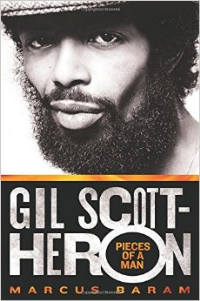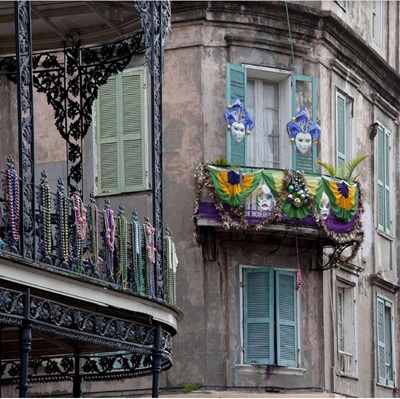Tonight, NBC presents a 40-year anniversary show on Saturday Night Live, which, during that time has presented many cutting-edge (and let’s face it, at times very drab) comedic moments and personalities. While the show is known for its comedy, musical performances have at times made the show staying up past normal bedtime hours a worthwhile option. One of those moments was a December, 1976 SNL hosted by Richard Pryor, who hand-picked his musical guest, the soul/jazz poet Gil Scott-Heron. That memorable appearance is reported on by Marcus Baram in this excerpt from his biography Gil Scott-Heron: Pieces of a Man:
_____
In the fall of 1975, Gil got a call from Richard Pryor, who invited him to be a musical guest on an upcoming episode of Saturday Night Live, which Pryor was going to host in a few weeks. Pryor invited him after hearing a story about Gil that impressed the comic: A few months earlier, Gil had been invited by singer Roberta Flack to perform on The Tonight Show when she guest-hosted for Johnny Carson. A few days later, the plans changed, and Gil was informed that Carson was going to keep hosting. When he found out that Flack wasn’t going to be there, Gil says he told the show’s producers not to book him, rejecting one of the most coveted gigs in entertainment. It’s not clear how much of this story is true, since Gil liked to embellish stories that polished his reputation. Flack insists that she never met Gil, though she knew his music, and insisted that she never invited Gil to be on The Tonight Show.
Ten days later, Gil got a phone call from someone who asked him, “Are you the man who didn’t go on the Johnny Carson show because Johnny was gonna be there?” Gil responded that he hadn’t really looked at it like that. The caller dropped the phone and screamed with laughter, adding, “Look, this is Richard Pryor, when I heard you weren’t going to go on because Johnny was going to be there, I thought it was the funniest thing I ever heard.” Pryor told Gil that he wanted him to perform on SNL, adding that Gil had free rein to play any songs he wanted.
Much like Clive Davis and Stevie Wonder had done, Pryor fought for Gil and championed his music. But he soon encountered some resistance from NBC producers, who weren’t thrilled to have Gil as a musical guest, hoping that Pryor could bring in a more popular group. Pryor insisted on Gil, at one point threatening to quit if he didn’t get his way, and the producers soon accepted his choice. Gil and the band were excited about the national exposure, though the now-iconic show was still unknown to many viewers.
When the band arrived at 30 Rockefeller Center and came out of the elevator on the eighth floor, they came upon John Belushi dressed as an out-of-control samurai chef. The band had never seen the character before and had no idea what to think. Belushi started waving his sword, speaking his fake Japanese, while giving them directions and never coming out of character. At one point, Gilda Radner followed Duncanson into the men’s room, taunting him with a carrot. Chevy Chase surprised the band with his piano-playing skills. “I looked up on the stage and it was him playing a Chick Corea piece,” remembers Brian Jackson. But host Richard Pryor was very quiet and shy offstage, standing in the shadows and quietly taking in the frenetic activity around him.
The episode featured several racially charged skits for the show’s first black host, skits that would be hard to imagine on network television in later decades. In one, Chevy Chase conducts a job interview with Pryor that involves a word-association test with increasingly racist responses. When chase says, “Tar baby,” Pryor responds with “Honky,” and they continue to elevate the insults to ever-more-offensive levels. At the skit’s climax, Chase says, “Nigger,” and Pryor responds with “Dead honky.” The audience was stunned before breaking into applause.
Introducing Gil and the band, Pryor held up a promotional copy of their upcoming From South Africa to South Carolina album and told the audience, “This is the man I wanted on the show and his organization. His latest album is Gil Scott-Heron and here he is!” Wearing a dashiki over a blue turtleneck and skinny dark jeans, Gil confidently announced, “A song for the brothers and sisters in South Africa,” before the band launched into a dynamic performance of “Johannesburg.” Later in the show, Gil sat at the piano and played “A Lovely Day,” a song he insisted on playing over the objections of the producers, who wanted to hear his songs such as “The Bottle.” It was their biggest audience to date: approximately twenty million Americans from every corner of the country. In the wake of their appearance, sales for The First Minute of a New Day climbed and fans eagerly anticipated the band’s next chapter.
_____
Excerpted from Gil Scott-Heron: Pieces of a Man, by Marcus Baram

Gil Scott-Heron’s Saturday Night Live performance
Gil Scott-Heron’s Wikipedia page











































a rather strange article …
a rather strange article …
Excelente!…BRAVOOOO!!!…
Excelente!…BRAVOOOO!!!…